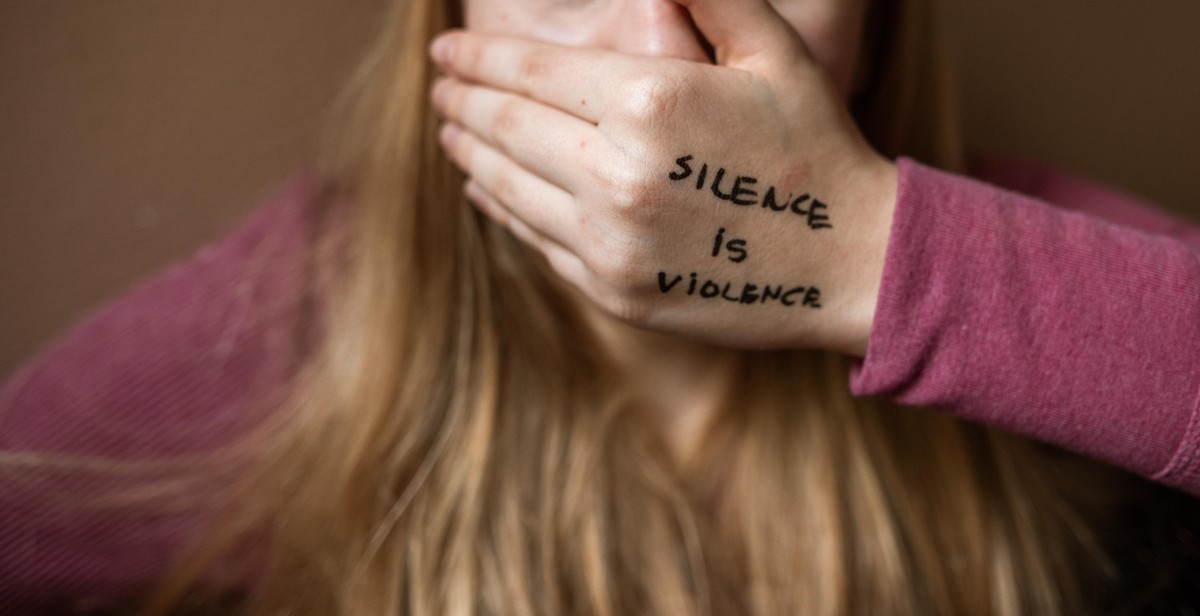Love’s Silent Tyrant: Recognizing and Overcoming Emotional Abuse
As a love and relationships psychology guru, I have seen countless cases of emotional abuse in relationships. It is a silent tyrant that can take a toll on one’s mental and emotional health. Unlike physical abuse, emotional abuse is not visible, and it can be challenging to recognize the signs.
Emotional abuse can manifest in various forms, such as controlling behavior, manipulation, gaslighting, and verbal abuse. It can happen to anyone, regardless of gender, age, or sexual orientation.
As someone who has personally experienced emotional abuse, I understand how difficult it can be to overcome. It can leave scars that last a lifetime if not addressed. However, it is essential to recognize the signs of emotional abuse and take action to overcome it.
In this article, I will discuss the different types of emotional abuse, its effects on mental health, and how to recognize and overcome it. If you or someone you know is experiencing emotional abuse in a relationship, this article will provide valuable insights and practical advice to help you break free from its hold and regain your emotional well-being.

What is Emotional Abuse?
Emotional abuse is a form of abuse that can be just as damaging as physical abuse. It is a pattern of behavior that is designed to control, manipulate, and belittle another person. Emotional abuse can occur in any type of relationship, including romantic relationships, friendships, and family relationships.
Defining Emotional Abuse
Emotional abuse can be difficult to define because it can take many different forms. However, at its core, emotional abuse is about power and control. It is a way for one person to assert their dominance over another person by using tactics such as:
- Humiliation and ridicule
- Isolation from friends and family
- Threats and intimidation
- Gaslighting and manipulation
- Withholding affection and attention
- Blaming and shaming
Emotional abuse can be subtle and insidious, making it difficult to recognize. It often starts small and gradually escalates over time, so the victim may not even be aware that they are being abused. In fact, many victims of emotional abuse blame themselves for the abuse, thinking that they are the problem.
Types of Emotional Abuse
There are many different types of emotional abuse, each with its own set of characteristics. Some of the most common types of emotional abuse include:
| Type of Emotional Abuse | Description |
|---|---|
| Verbal Abuse | Using words to hurt, humiliate, or belittle another person. |
| Gaslighting | Manipulating someone into questioning their own reality, memory, or sanity. |
| Isolation | Limiting someone’s access to friends, family, and other sources of support. |
| Financial Abuse | Using money or financial resources to control or manipulate someone. |
| Emotional Neglect | Ignoring or dismissing someone’s emotional needs or feelings. |
It’s important to note that emotional abuse is not always intentional. Sometimes, people engage in emotionally abusive behavior without realizing the harm that they are causing. However, this does not excuse the behavior or make it any less damaging to the victim.

Recognizing Emotional Abuse
Emotional abuse is a form of abuse that can be difficult to recognize. Unlike physical abuse, emotional abuse often leaves no visible scars or marks. However, the effects of emotional abuse can be just as damaging, if not more so, than physical abuse.
Signs of Emotional Abuse
There are several signs of emotional abuse that you should be aware of:
- Verbal abuse, such as name-calling, belittling, and yelling
- Isolation, such as preventing you from seeing friends and family or controlling your activities
- Manipulation, such as using guilt, fear, or shame to control you
- Gaslighting, which is a form of psychological manipulation that causes the victim to doubt their own sanity or perception of reality
- Threats, such as threatening to harm you, your children, or your pets if you don’t comply with their demands
- Intimidation, such as using physical gestures or postures to intimidate you
If you are experiencing any of these signs of emotional abuse, it is important to seek help. Emotional abuse can have long-lasting effects on your mental health and well-being.
Why Emotional Abuse is Often Overlooked
One reason that emotional abuse is often overlooked is that it can be subtle and insidious. The abuser may use tactics that are difficult to identify or explain, such as gaslighting or manipulation. Additionally, emotional abuse may be dismissed or minimized by others, including friends, family members, and even mental health professionals.
Another reason that emotional abuse is often overlooked is that the victim may not recognize it as abuse. They may believe that the behavior is normal or that they deserve it. They may also be afraid to speak out or seek help, especially if the abuser has threatened them or their loved ones.
It is important to remember that emotional abuse is not your fault and that you deserve to be treated with respect and dignity. If you are experiencing emotional abuse, reach out to a trusted friend, family member, or professional for help.
| Tip: | If you are unsure if you are experiencing emotional abuse, consider seeking the advice of a mental health professional. They can help you identify the signs of emotional abuse and provide you with the support and guidance you need. |

The Effects of Emotional Abuse
Emotional abuse is a form of abuse that can have severe and long-lasting effects on a person’s mental and emotional well-being. It is a silent but powerful tyrant that can slowly eat away at a person’s self-esteem, confidence, and sense of self-worth.
Short-Term Effects of Emotional Abuse
The short-term effects of emotional abuse can be just as damaging as the long-term effects. In fact, they can often be the precursor to more severe long-term effects. Some of the short-term effects of emotional abuse include:
- Anxiety and depression
- Low self-esteem and confidence
- Feelings of helplessness and worthlessness
- Difficulty sleeping or sleeping too much
- Feeling isolated and alone
- Physical symptoms such as headaches and stomachaches
These short-term effects can have a significant impact on a person’s daily life and can make it challenging to function normally. They can also lead to more severe long-term effects if the emotional abuse continues.
Long-Term Effects of Emotional Abuse
The long-term effects of emotional abuse can be devastating and can last a lifetime. They can affect a person’s ability to form healthy relationships, trust others, and feel confident in themselves. Some of the long-term effects of emotional abuse include:
- Chronic anxiety and depression
- Post-traumatic stress disorder (PTSD)
- Self-harm and suicidal thoughts
- Substance abuse and addiction
- Eating disorders and body image issues
- Difficulty regulating emotions and coping with stress
These long-term effects can have a significant impact on a person’s quality of life and can lead to a range of mental health issues. It is essential to recognize the signs of emotional abuse and seek help if you or someone you know is experiencing it.
| Short-Term Effects | Long-Term Effects |
|---|---|
| Anxiety and depression | Chronic anxiety and depression |
| Low self-esteem and confidence | Post-traumatic stress disorder (PTSD) |
| Feelings of helplessness and worthlessness | Self-harm and suicidal thoughts |
| Difficulty sleeping or sleeping too much | Substance abuse and addiction |
| Feeling isolated and alone | Eating disorders and body image issues |
| Physical symptoms such as headaches and stomachaches | Difficulty regulating emotions and coping with stress |

Breaking Free from Emotional Abuse
Emotional abuse is a silent tyrant that can slowly destroy your self-esteem, confidence, and happiness. It is essential to acknowledge and recognize the abuse to break free from its grip. Here are some steps to help you overcome emotional abuse:
Acknowledging the Abuse
The first step to overcoming emotional abuse is to acknowledge that you are being abused. Many people in abusive relationships often make excuses for their partner’s behavior or blame themselves for the abuse. However, it is crucial to understand that emotional abuse is not your fault, and you deserve to be treated with respect and kindness.
Setting Boundaries
Once you have acknowledged the abuse, it is crucial to set clear boundaries with your partner. Let them know that their behavior is unacceptable and that you will not tolerate it. Be firm and consistent with your boundaries, and do not let your partner manipulate or guilt-trip you into changing them.
Seeking Professional Help
Breaking free from emotional abuse can be challenging, and it is okay to seek professional help. A therapist or counselor can help you work through the trauma of emotional abuse and provide you with tools and strategies to overcome it. They can also help you develop a safety plan and connect you with resources in your community.
- Remember, you deserve to be treated with love and respect.
- Do not hesitate to seek help if you are experiencing emotional abuse.
- Stay strong and stay safe.
